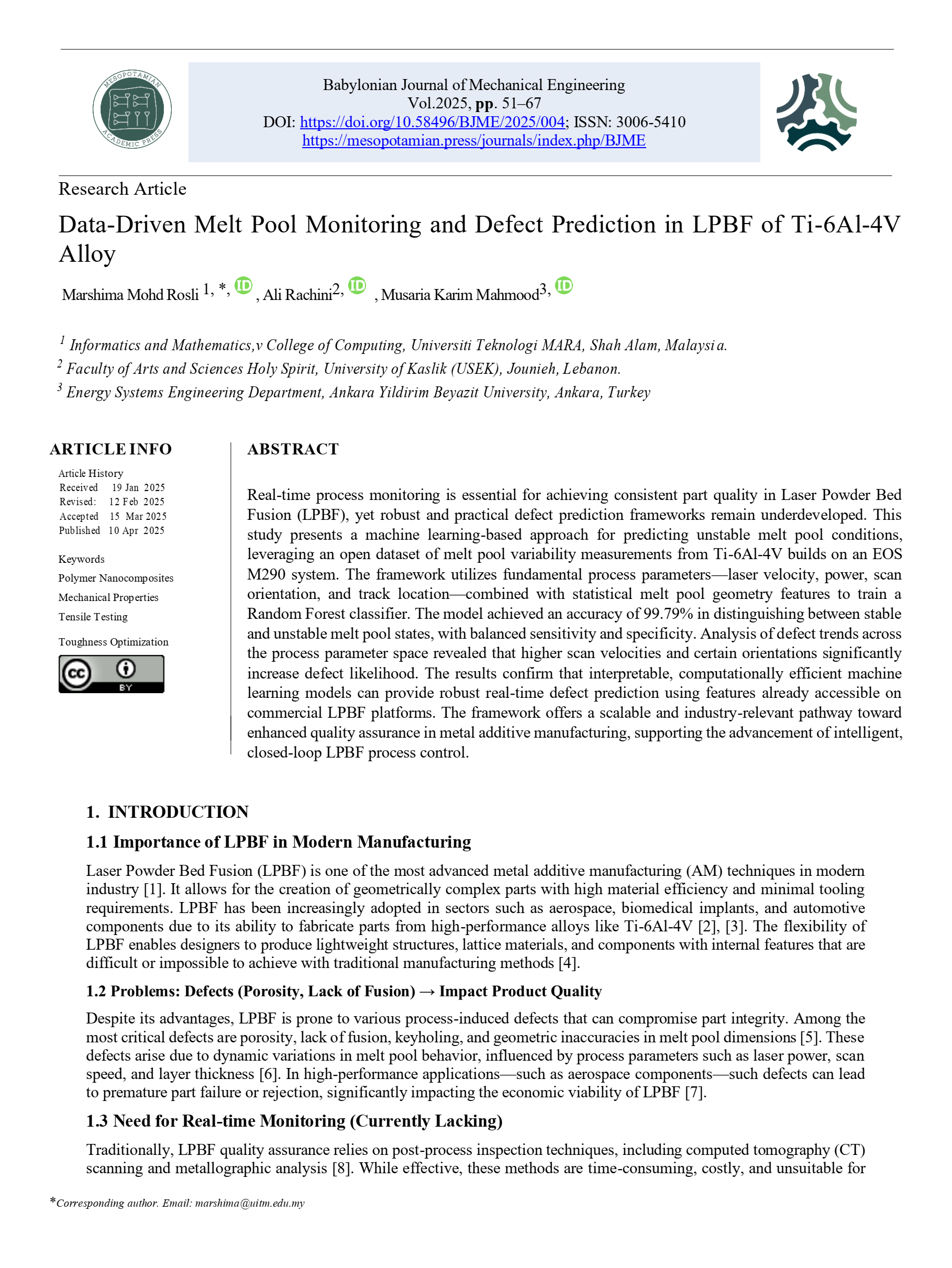Data-Driven Melt Pool Monitoring and Defect Prediction in LPBF of Ti-6Al-4V Alloy
Main Article Content
Abstract
Real-time process monitoring is essential for achieving consistent part quality in Laser Powder Bed Fusion (LPBF), yet robust and practical defect prediction frameworks remain underdeveloped. This study presents a machine learning-based approach for predicting unstable melt pool conditions, leveraging an open dataset of melt pool variability measurements from Ti-6Al-4V builds on an EOS M290 system. The framework utilizes fundamental process parameters—laser velocity, power, scan orientation, and track location—combined with statistical melt pool geometry features to train a Random Forest classifier. The model achieved an accuracy of 99.79% in distinguishing between stable and unstable melt pool states, with balanced sensitivity and specificity. Analysis of defect trends across the process parameter space revealed that higher scan velocities and certain orientations significantly increase defect likelihood. The results confirm that interpretable, computationally efficient machine learning models can provide robust real-time defect prediction using features already accessible on commercial LPBF platforms. The framework offers a scalable and industry-relevant pathway toward enhanced quality assurance in metal additive manufacturing, supporting the advancement of intelligent, closed-loop LPBF process control.
Article Details
Issue
Section

This work is licensed under a Creative Commons Attribution 4.0 International License.
